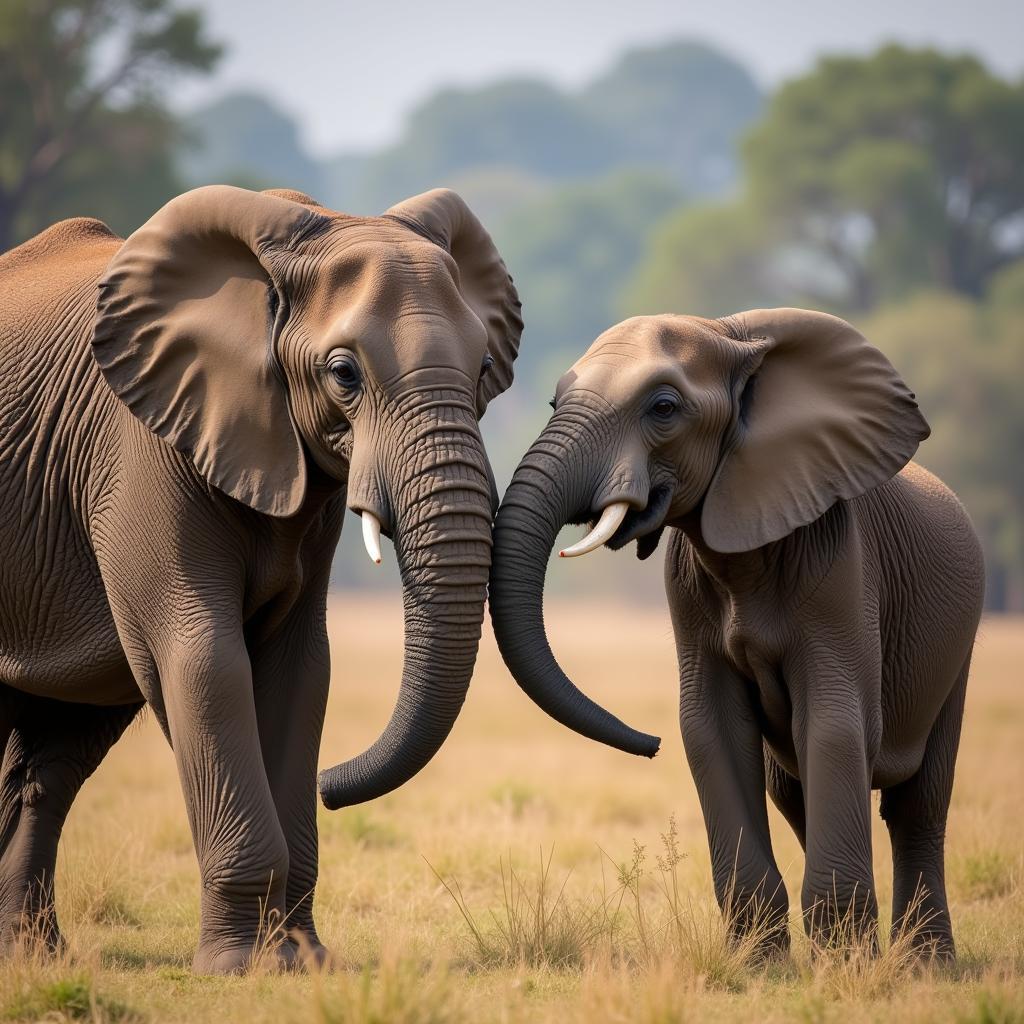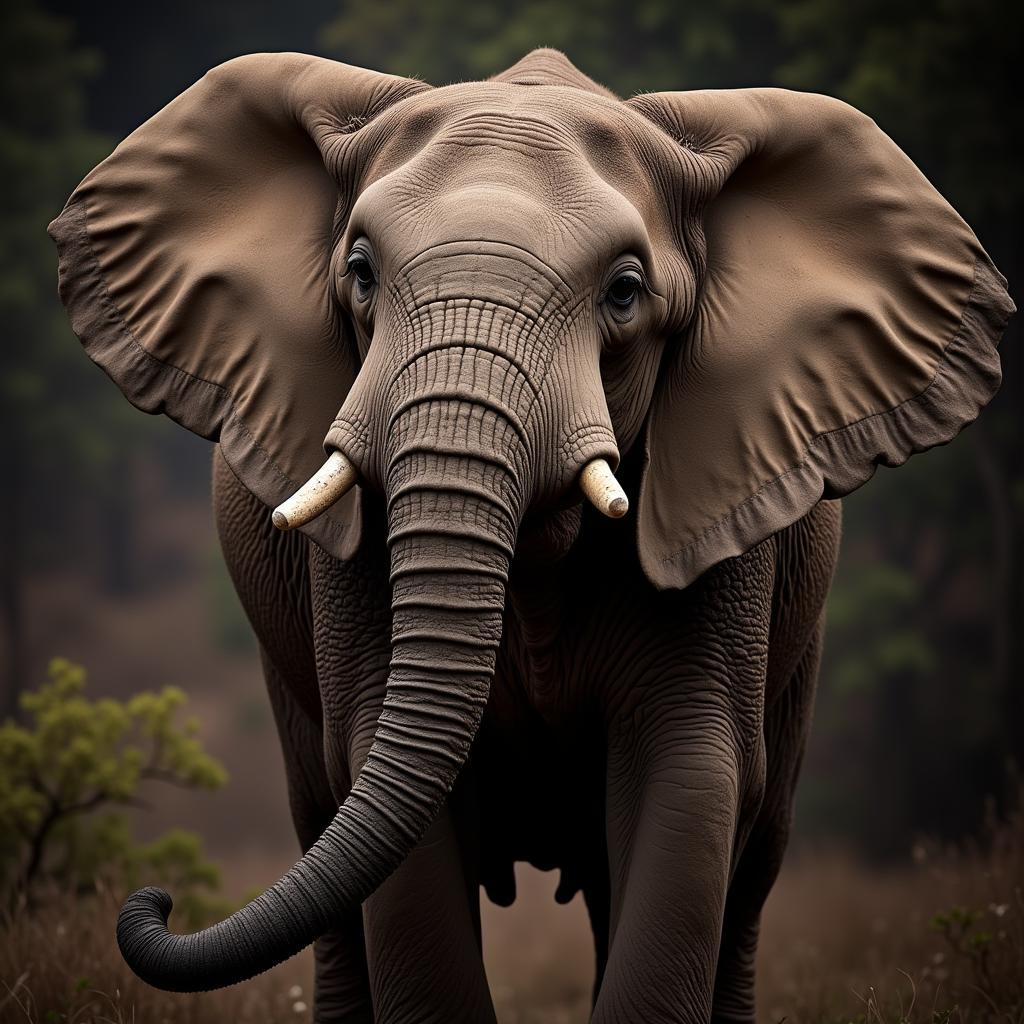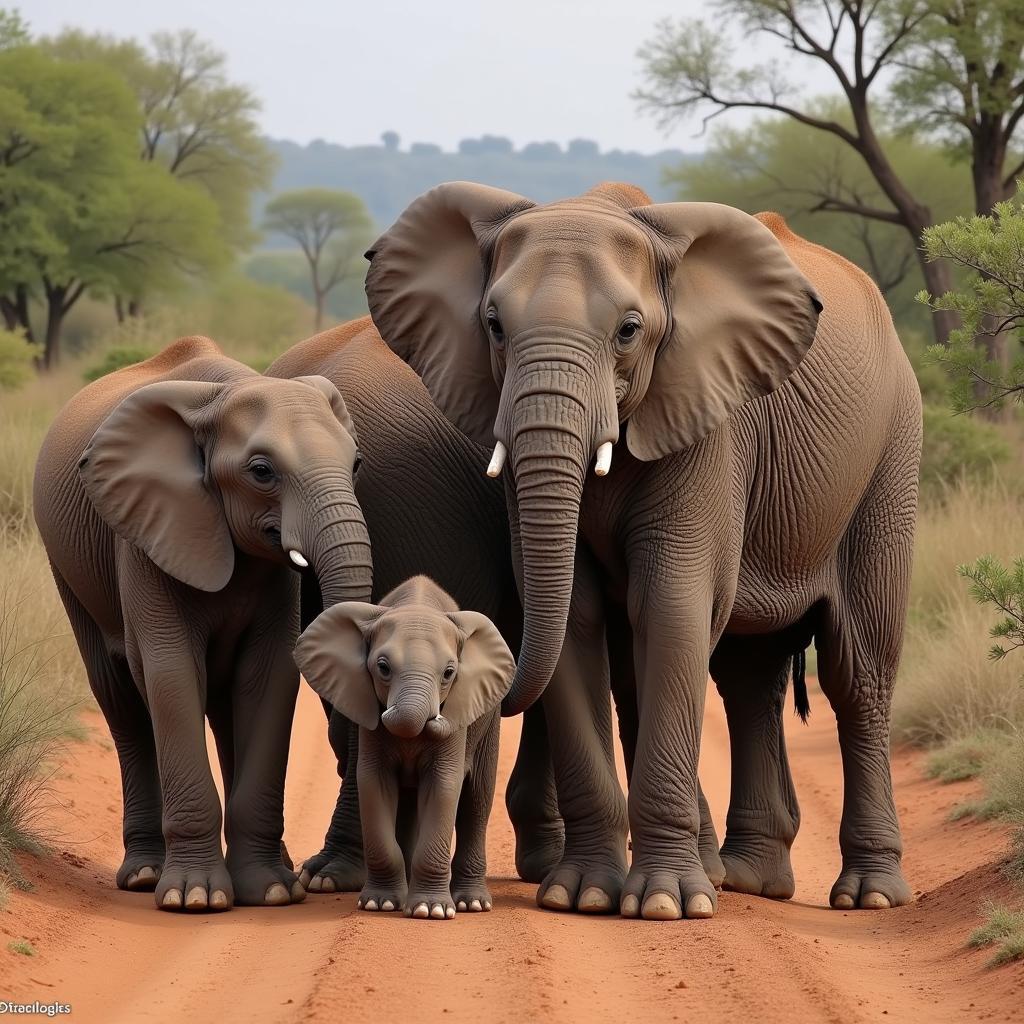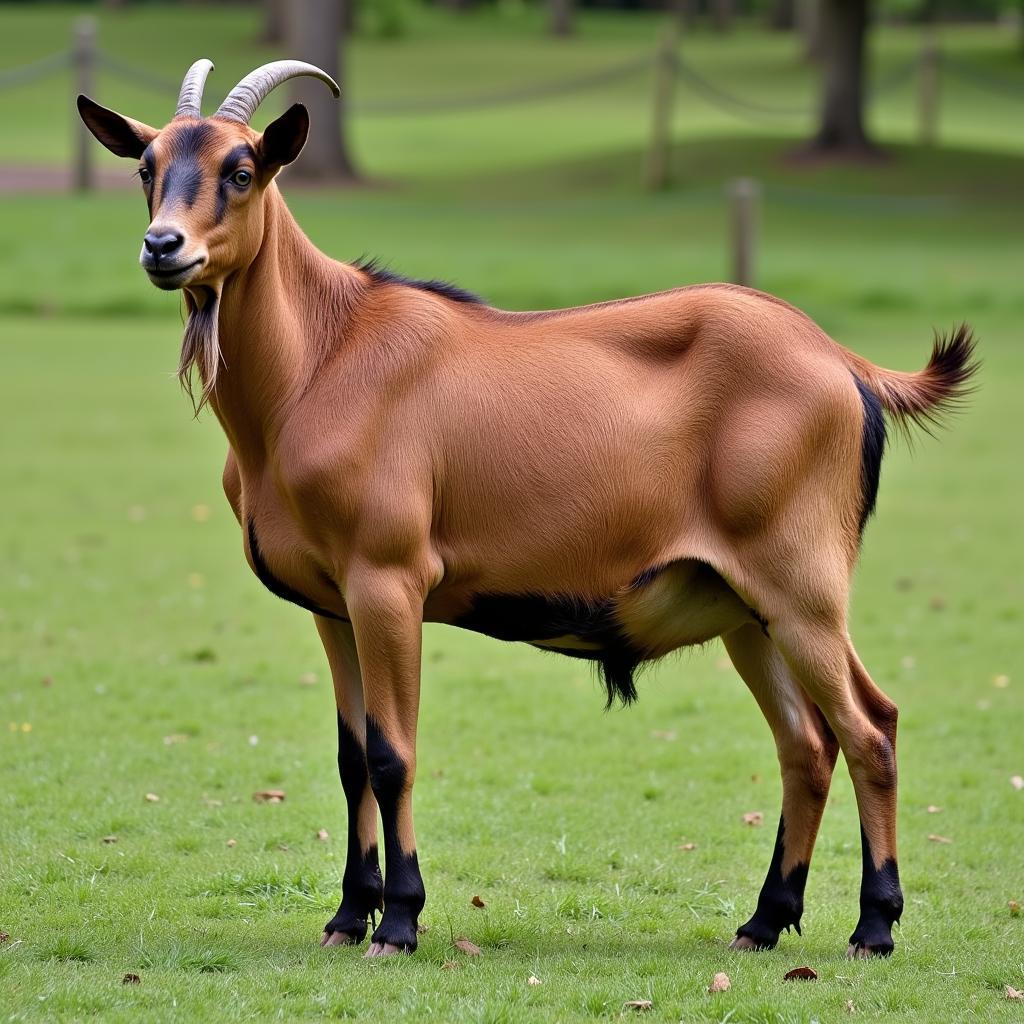Unveiling the Secrets of African Bush Elephant Reproduction
The African bush elephant, a majestic giant roaming the savannas and forests of Africa, holds a captivating story within its life cycle, particularly when it comes to reproduction. Understanding the intricacies of African Bush Elephant Reproduction offers a glimpse into the fascinating world of these intelligent and socially complex creatures.
A Symphony of Age, Size, and Timing: The Onset of Sexual Maturity
Unlike many animals with defined breeding seasons, African bush elephants can reproduce year-round. However, the journey towards parenthood begins at different ages for males and females. Females typically reach sexual maturity between 10 and 12 years old, marking their entry into the world of breeding. Males, on the other hand, embark on this journey a bit later, reaching sexual maturity around 10 to 20 years of age.
 African Bush Elephant Mating Rituals
African Bush Elephant Mating Rituals
But age is only one part of the equation. Size plays a crucial role as well. Both male and female elephants need to reach a certain size and weight before they are physically capable of reproducing. This ensures that they are strong enough to support a pregnancy and raise a calf.
The Power of Musth: Male Competition and Mate Selection
The quest to father the next generation of elephants ignites fierce competition among males. Enter “musth,” a periodic state characterized by elevated testosterone levels and aggressive behavior. During musth, males ooze a tar-like substance from their temporal gland, signaling their readiness to mate. This potent signal, along with their aggressive displays, serves as a clear message to other males – “back off, I’m ready to breed.”
 African Bush Elephant Male in Musth
African Bush Elephant Male in Musth
Females, however, are the ultimate decision-makers. They carefully choose their mates based on factors such as size, strength, and dominance, often favoring males in musth. This selective breeding behavior ensures that their offspring inherit the best genes, increasing their chances of survival.
A Long Wait: Gestation and the Arrival of a Newborn Calf
Once a female elephant conceives, she embarks on an extraordinary journey – the longest pregnancy in the mammal kingdom, lasting approximately 22 months. This extended gestation period allows for the development of a well-developed calf, equipped to navigate the challenges of the African wilderness.
The arrival of a newborn calf is a momentous occasion for the entire herd. Weighing in at a hefty 200 pounds, the calf relies heavily on its mother’s milk and protection during its early years. The bond between a mother and her calf is incredibly strong, forming the bedrock of elephant society.
Raising a Giant: A Collaborative Effort
Raising an elephant calf is no small feat. It requires a village, or rather, a herd. Female elephants, including sisters, aunts, and grandmothers, play an active role in raising and protecting the young. This collaborative approach, known as alloparenting, provides calves with the best possible start in life, increasing their chances of survival and passing on their genes to future generations.
 African Bush Elephant Herd with Calf
African Bush Elephant Herd with Calf
Navigating Threats: The Future of African Bush Elephants
The reproductive journey of African bush elephants, while awe-inspiring, faces numerous challenges. Habitat loss, human-wildlife conflict, and poaching pose significant threats to their populations. Understanding and appreciating the complexities of their reproduction is crucial for implementing effective conservation strategies and ensuring the survival of these magnificent creatures for generations to come.
FAQs: Delving Deeper into Elephant Reproduction
1. How often do African bush elephants reproduce?
While they can reproduce year-round, female elephants typically give birth every 2 to 4 years.
2. What is the significance of musth in elephant reproduction?
Musth signals a male’s readiness to mate, increasing testosterone levels and promoting aggressive behavior to compete for females.
3. How long do African bush elephant calves stay with their mothers?
Calves stay with their mothers for several years, learning essential survival skills and benefiting from their protection.
4. How can I contribute to African bush elephant conservation?
Supporting organizations dedicated to elephant conservation, raising awareness, and advocating for responsible tourism are all impactful ways to contribute.
5. Where can I find more information on African bush elephants?
For more insights into the fascinating world of African bush elephants, explore our articles on African desert animals list and African bush elephant vs Asian elephant.
Need More Information?
If you have further questions or need additional assistance, please don’t hesitate to contact us:
Phone Number: +255768904061
Email: kaka.mag@gmail.com
Address: Mbarali DC Mawindi, Kangaga, Tanzania.
Our dedicated customer support team is available 24/7 to assist you. Let’s work together to protect these magnificent creatures!



